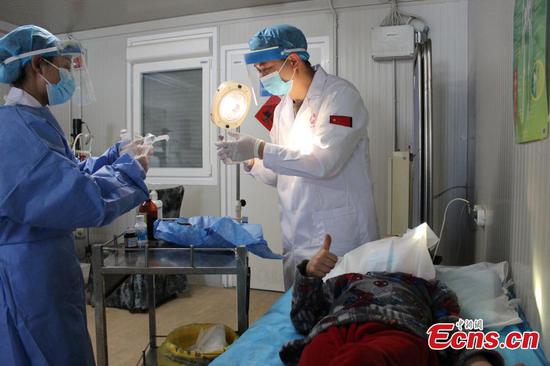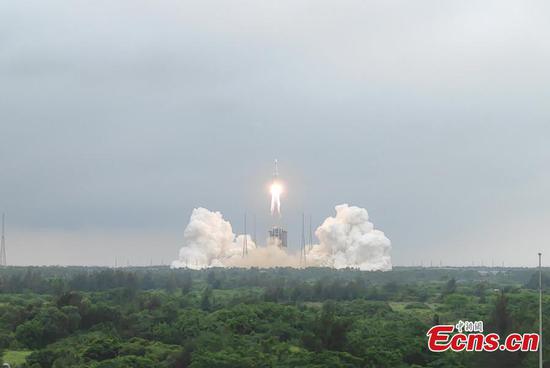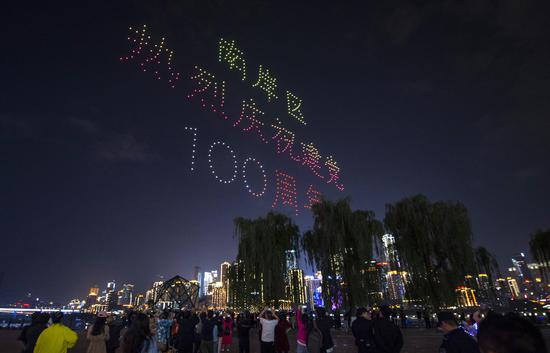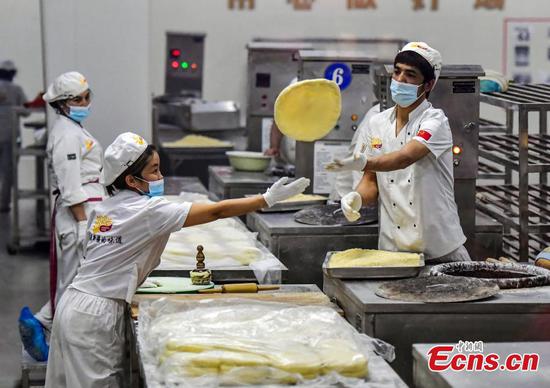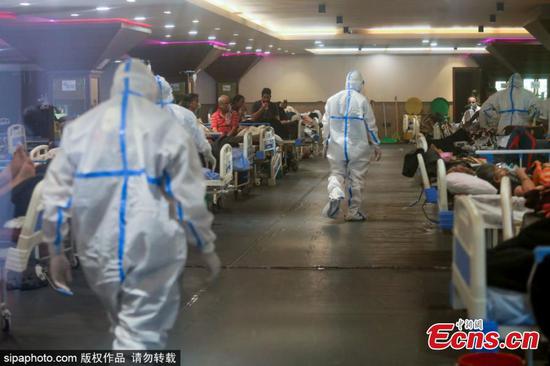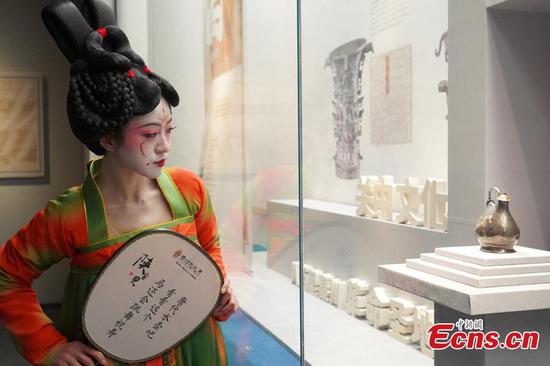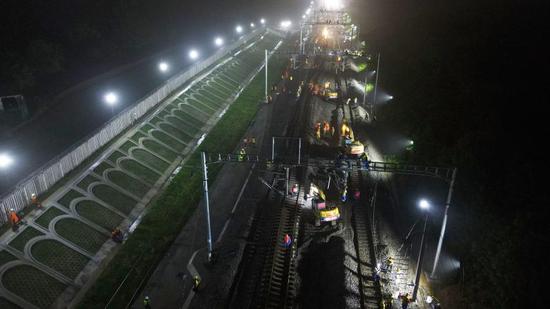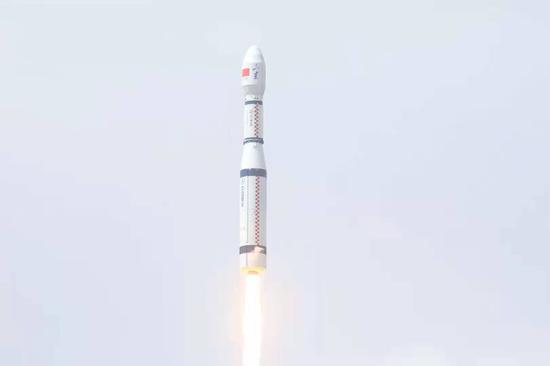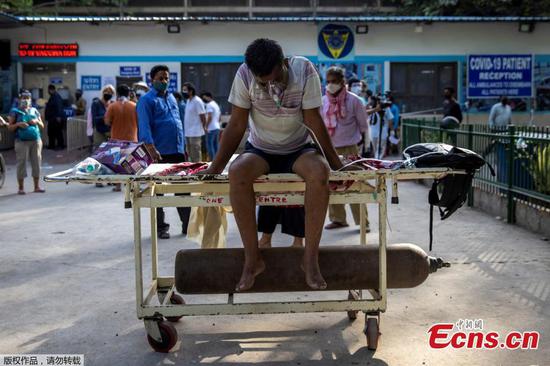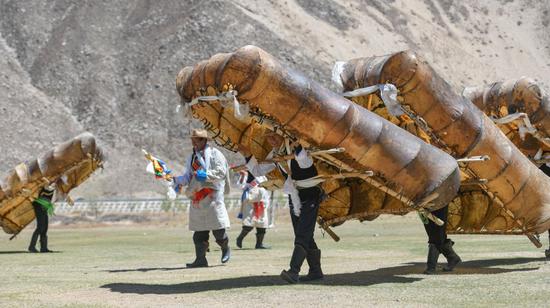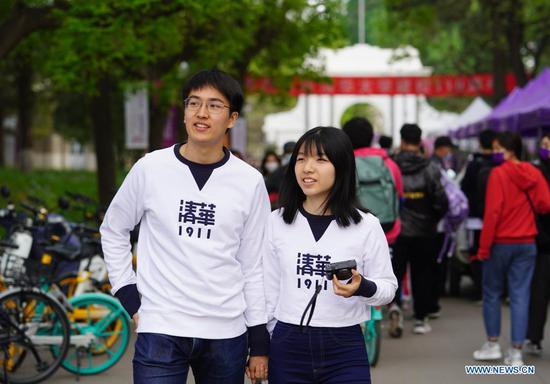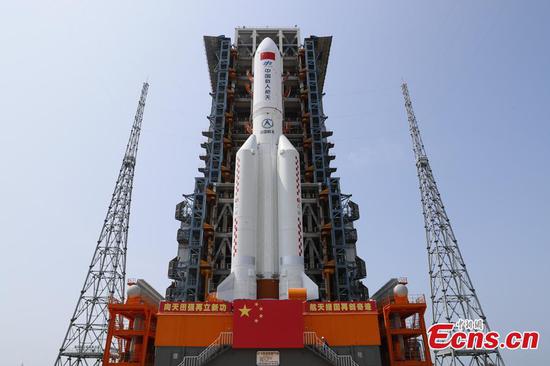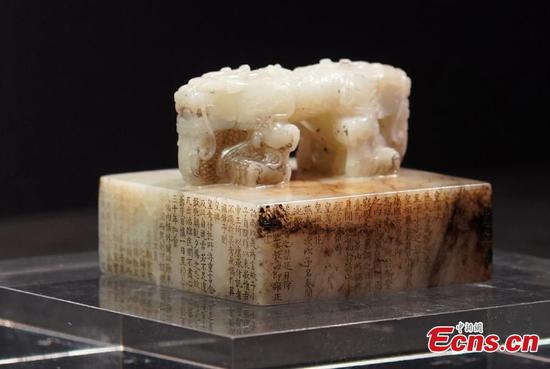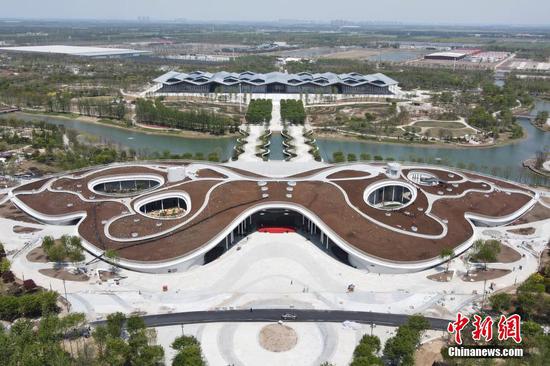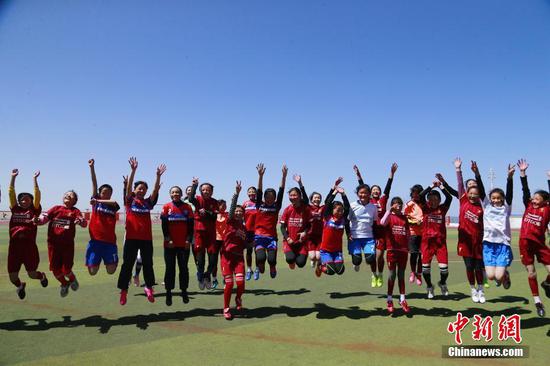
Children have fun on Dove Lane in Hotan city, Northwest China's Xinjiang Uygur autonomous region, May 27, 2020. (Photo/Xinhua)
III. The so-called research findings published by Zenz and others are full of blatant data faking and fraudulent claims. They confuse speculation with hard facts, blur the lines between propaganda and academic research, and fabricate anti-China narratives based on ideology.
◆Zenz's "paper" on "forced sterilization" in Xinjiang was quoted by former US Secretary of State Mike Pompeo, who cited Zenz's name and "paper" to level his genocide allegation. This "paper" was also cited by the Associated Press, CNN and others, who apparently did no reality check at all on his research. The "paper" has never been published by any academic journals, or gone through any peer review. It was only released by the Jamestown Foundation founded under the direction of former CIA Director William J. Casey as an extra-governmental channel to pay Soviet dissidents and, in essence, as a front-line tool of the CIA.
◆Zenz's "research" based on no academic contexts, and his "paper" fraught with loopholes and data misuse, would fail to pass any academic publication review. His "major finding" was the claim that in 2018, "80 percent of all net added IUD placements in China… were performed in Xinjiang." It sounds like 80 percent of China's IUD insertions were carried out in Xinjiang.
The original source of Zenz's claim, the 2019 China Health Statistics Yearbook, shows that the number of new IUD insertion procedures in Xinjiang in 2018 accounted for only 8.7 percent of China's total. (The total number of IUD insertion procedures in 2018 nationwide was about 3.77 million, among which about 330,000 were in Xinjiang.) Zenz then coined the phrase "net added IUD insertions", and found that the number of "net added IUD insertions" in China was around 300,000 (IUD added minus those removed), while the number in Xinjiang was around 239,000. He then concluded that the number of "net added IUD insertions" in Xinjiang accounted for about 80% of the national total.
According to his logic, and take Henan Province for example, it registered a "net added IUD insertions" of 206,000, accounting for 69% of the national total. Adding the percentage of Xinjiang (80%) and that of Henan (69%) would be more than 100%, which makes no sense at all. Through this cunning trick, Zenz got the incendiary figure of 80%, but still he could not make out a good case. He manipulated data to produce a false impression that the majority of women in Xinjiang were forcibly or even compulsively sterilized.
◆A chart in Zenz's "paper" claims that new IUD placements in Xinjiang average between 800 and 1,400 per capita each year, which means each woman in the region would have to undergo 4 to 8 IUD insertion surgeries every day. The figures simply make no sense.
◆Zenz interpreted a photograph as part of an "effort to enforce the thorough implementation of increasingly intrusive birth control efforts". But those in the center of the photograph don't look like people of childbearing age. As a matter of fact, the photo is taken from an article by China News Service about a local poverty alleviation program in Xinjiang. The two elderly people in the photo were seeing the doctor for free, as part of the free health check-ups and medical consultation offered to local residents under the program. The mix-up shows that Zenz either does not understand the Chinese language or knows little about the basic situation in Xinjiang.
◆In his "paper", Zenz tried to distort facts and framed any government spending on public health as part of the "genocide" policy, such as the US$5 billion funds provided by the Chinese central government between 2013 and 2017 to support healthcare and family planning programs in the Xinjiang Uyghur Autonomous Region and the Xinjiang Production and Construction Corps. When citing figures to make his argument, Zenz left out data on maternal and infant mortality reduction in Xinjiang. If China were really intending a "genocide" against the Uyghurs in Xinjiang, there would have been no need to work so hard to reduce maternal and infant mortality.
◆When a "scholar" like Zenz was asked for opinion by public relations companies or think tanks in Washington, no one questioned his qualifications. It was only after an independent media investigation that it was found he didn't have the right academic credentials. Zenz blatantly misused data in order to draw biased conclusions about "genocide", which were then used by the US government and some of its hardliners to disrupt diplomacy between China and the US. For political elements who want Sino-US relations to deteriorate further, Zenz happened to be of great use.
◆The academic community in the US is facing tremendous pressure of censorship and self-censorship. Speaking the truth or questioning Zenz's claims in the media often comes with a price. Zenz once threatened to sue Joshua M. Landis, a well-known American expert on Syria, because Landis retweeted an article on the thegrayzone.com exposing Zenz. Landis' tweet was later deleted.
◆During the Bush administration, the US State Department used the media and Congress to manipulate public opinion and make up a story about Iraq's weapons of mass destruction. Now on Xinjiang, the same trick is being used to manipulate the media, Congress and even the public.
◆The US intervention campaign against Xinjiang actually started in the 1990s. The House of Representatives Committee on Foreign Affairs, backed by its then chair and Congressman Tom Lantos, a supporter of subverting foreign governments, received some "Uyghurs in exile" who made similar testimonies about forced abortion and so on. The organizers of this campaign tried to stop Bill Clinton and his administration from granting China most favored nation (MFN) status, but they failed.













